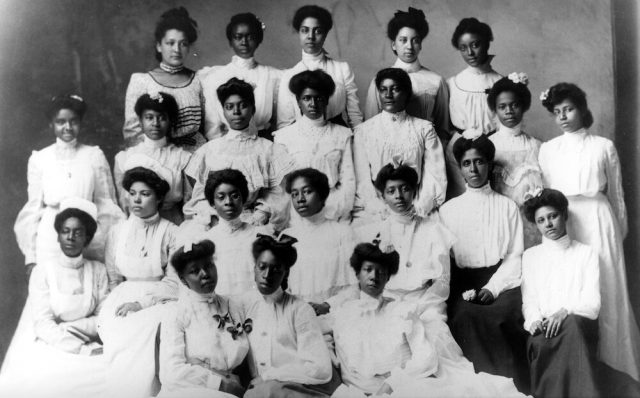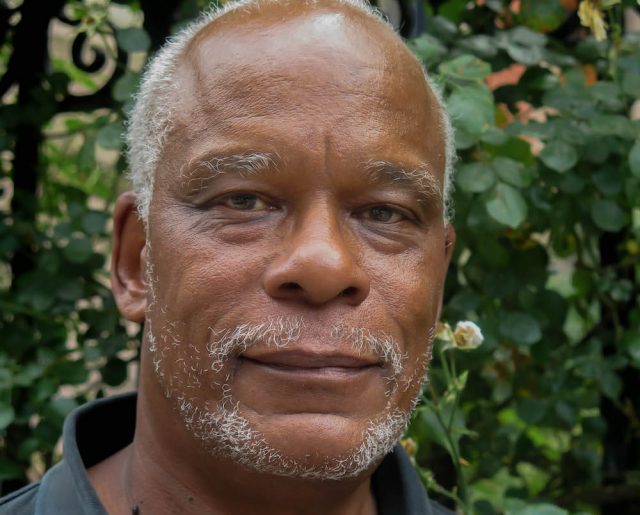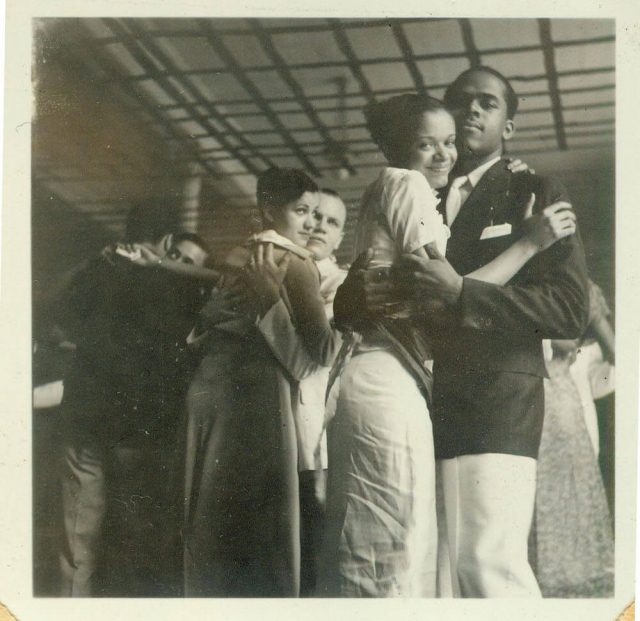By Daniel Bergin | Rewire
“This is the dream!”
These are the first words spoken in the film Tell Them We Are Rising, director Stanley Nelson’s affirming and informative survey of historically black colleges and universities, or HBCUs, in the United States. The documentary will have its PBS premiere on Independent Lens on Feb. 19.
It is a fitting phrase to open the feature film because Nelson sees education as central to success.
“The dream is the whole story,” Nelson said in an interview with Rewire. “What we wanted to say in the film is how important education was and still is.”
‘A different culture’

By the late 19th century, HBCUs were catering to college-bound black people due, in part, to inhospitable or inaccessible mainstream schools. Equally important, as many of the notable alumni relate in the documentary, these black institutions emerged to meet the need for a more Afrocentric higher-ed experience.
Black students often face a range of challenges on large, mainstream campuses, from incidents of hate crimes to lack of diverse faculty. A 2015 Gallup study showed that graduates of HBCUs felt more financial, social, physical and community well-being than African American graduates of non-HBCU institutions.
HBCUs offer a meaningful alternative where students can focus on their education. Their environments are unique suited for black students, Nelson said.
“There’s a different energy at HBCUs. A different culture.”
A history of education
“Tell Them We Are Rising” relates the experiences of African American students before and after slavery, through the Harlem Renaissance and up to the Civil Rights era. Instead of simply offering anecdotes from the more than 100 HBCUs in the U.S., like Tuskegee, Fisk and Spelman, Nelson wanted to weave the story of HBCUs into the larger experience of African Americans.

“We realized that you could look at this film as being the story of the United States and African Americans in the United States told through the filter of Black colleges and Universities,” he said.
As the film makes clear, the story of African Americans hinges on education. Nelson presents the transformational power of learning for enslaved black people before emancipation and free black people after the Civil War.
“One of the main things we want to get across is how important higher education is,” Nelson said. “If we just get educated, things are going to be all right. An education still means what it’s always meant—that it is a way to a better life.”
The future of HBCUs
Ironically, access to mainstream schools in the past half-century has eroded the number of students attending HBCUs. Nelson powerfully illustrates this point with footage of the overgrown, graffiti-scrawled Morris Brown University campus.

“You see the 10-story dorms, which were the pride of Morris Brown,” Nelson said. “And to see them deserted and the windows broken. We don’t think these things can happen to our institutions, we think these institutions are always going to be there.”
While many historically black colleges and universities are facing declines in attendance and financial challenges—the number of degrees HBCUs have conferred has dropped since the 1970s—the schools remain a compelling choice for many. Today, HBCUs enroll one in 10 African American college graduates.
“Tell Them We Are Rising” concludes with a collage of contemporary college students moving into dorms, stomping at step shows and celebrating at graduations.
This powerful visual invocation is part of Nelson’s cinematic homage to unique institutions he sees as vessels of education and identity.
“Another thing that’s been on my mind is how amazing HBCUs are in preserving and validating culture,” he said. “HBCUs are the only place you’re going to find grits for lunch. Black people can be black.”
Tell Them We Are Rising premieres on PBS’s Independent Lens on Feb. 19.
![]() This article originally appeared on Rewire.
This article originally appeared on Rewire.
Sign up for Rewire here.
© Twin Cities Public Television - 2018. All rights reserved.
Read Next



